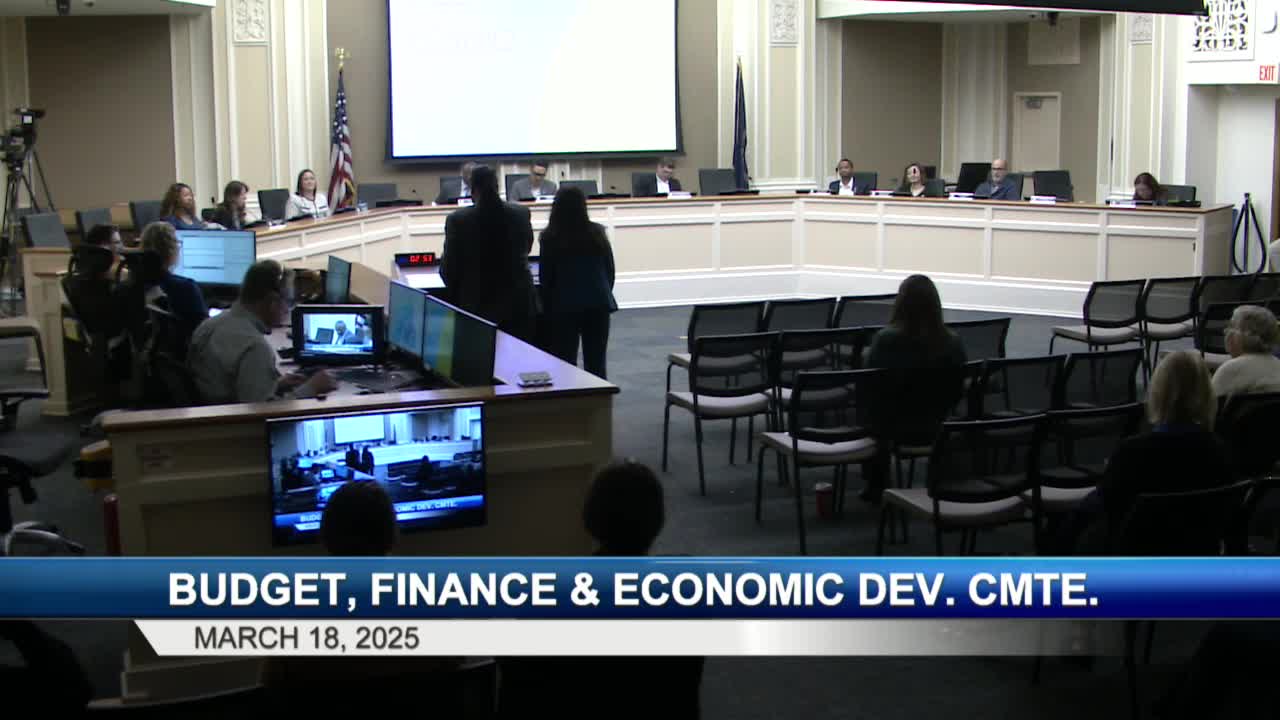United Way brings ALICE data tools to Lexington to map households above the poverty line but still struggling
Get AI-powered insights, summaries, and transcripts
Subscribe
Summary
United Way representatives introduced the ALICE research initiative to the Budget, Finance & Economic Development Committee on March 18, describing tools that map households that are working but unable to cover basic needs.
United Way of the Bluegrass and United for ALICE representatives briefed the Budget, Finance & Economic Development Committee on March 18 about the ALICE research initiative, a data suite aimed at identifying households that are working but still struggle to afford basics such as housing, childcare, transportation and health care.
Timothy Johnson, president and CEO of United Way of the Bluegrass, introduced the effort and said ALICE offers a different lens than the federal poverty measure to inform budgeting, policy and local investments. “ALICE represents a growing number of households who are working but struggling to afford the most basic of needs like housing, childcare, transportation, and healthcare,” Johnson said.
Kieran Garioso, president and CEO of United Way of Northern New Jersey and CEO of United for ALICE, described the methodology and national tools the initiative offers: updated county and tract‑level ALICE metrics, an ALICE Essentials Index to track cost pressures on basic household budgets, a wage‑calculator tool that estimates a living or survival wage by household composition and regional cost, and mapping and analytics for policymakers and service providers. Garioso said ALICE data now cover all 50 states and more than 3,000 counties.
Why it matters: committee members said ALICE metrics can supplement existing data to better target subsidies, affordable‑housing policy and workforce supports. Several members expressed interest in follow‑up technical briefings and in using the wage tool for local policy work.
Highlights and local context
- Scope and methodology: Garioso said ALICE originated in New Jersey in 2009 and uses publicly available sources — primarily the American Community Survey — with a national panel of researchers to update methodology each summer.
- National and local figures: Garioso said ALICE plus poverty households represent a substantial share of U.S. households (the presentation cited about 41% nationally). United Way staff also cited a national figure of roughly 54 million households that are ALICE or below; the presentation materials include national and county maps and local data slices.
- Tools and partnerships: ALICE provides a wage calculator and an Essentials Index that track how much of a household’s income is consumed by basics. United for ALICE partners with entities such as the Federal Reserve regional banks, FEMA and higher‑education partners to use the data for benefits‑cliff modeling, disaster planning and targeting student supports.
- Kentucky launch and funding: presenters said the Humana Foundation provided support to bring ALICE data capacity to Kentucky and that local United Way and public partners will coordinate a local rollout.
Committee reaction and follow‑up
Councilmember Sheehan said she tested the wage calculator during the meeting and found the city’s Fayette County survival wage for a family of three was about $16 per hour on the tool for the survival budget; staff offered to provide a data‑dive session for council to walk through county and neighborhood‑level results.
Ending: United Way staff asked the committee to signal interest in local partnership; committee members indicated they want more technical briefings and an ALICE data dive for staff and council to explore how the metrics could inform affordable‑housing policy, workforce development and nonprofit funding.
